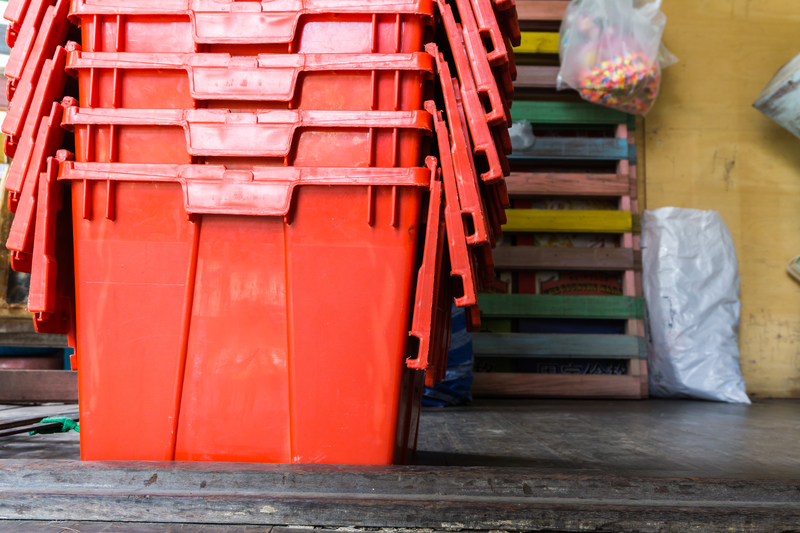Avoid Last-Minute Panic When Moving Homes: The Ultimate Step-by-Step Guide
Moving homes can be as exciting as it is stressful. The prospect of a fresh start is often overshadowed by the chaos of packing, organizing, and making sure nothing--and no one--is left behind. If you want to avoid last-minute panic when moving homes, comprehensive planning is your best ally. In this guide, we'll share top strategies, tricks, and actionable steps to make your moving day stress-free and organized. Read on for the ultimate moving home tips!
Why Do People Panic Before Moving?
Before we discuss how to steer clear of last-minute panic when moving house, it's important to understand why it happens. Moving is a time of transition, and with that comes a surge in logistics, emotional attachments, and the pressure to get every detail right. Rushing to pack, forgetting crucial documents, or miscommunicating with movers are just a few stressors that can tip the scales from excited to overwhelmed.

Early Preparations: The Key to Stress-Free Moves
Start Planning Weeks Ahead
The most effective way to prevent last-minute moving panic is to start as early as possible. Ideally, begin your preparations at least 6-8 weeks before your moving date. This gives you plenty of time for organization, decluttering, and handling issues as they arise.
- Create a moving timeline: List everything you need to accomplish and set weekly goals.
- Notify important parties: Inform your landlord, utility companies, and postal service well before the move.
- Gather packing supplies: Get boxes, tape, bubble wrap, and markers early to avoid last-minute shopping runs.
Declutter Ruthlessly
Packing unnecessary items can add to your stress and inflate moving costs. Use this opportunity to pare down your belongings:
- Sort items room-by-room. Decide what to keep, donate, sell, or throw away.
- Hold a garage sale to clear out items you no longer need.
- Arrange donation pickups for unwanted items well in advance.
Make a Master Moving Checklist
An ultimate moving home checklist can be your lifesaver. Write out each step, from hiring movers to updating your address. Break down the tasks into manageable chunks, and check them off as you go. This methodical approach will help you avoid a last-minute panic attack when moving homes.
Essentials to Include on Your Checklist:
- Book moving services (or reserve a moving van if doing it yourself)
- Schedule disconnection/reconnection of utilities
- Arrange for child or pet care on moving day
- Collect important documents (passports, medical records, school records)
- Plan meals for moving day
Packing Like a Pro
Pack Early and Strategically
Start packing non-essentials several weeks before moving day. Save daily-use items for last. Packing by category or room keeps you organized and avoids frenzied, random packing at the last minute.
- Label every box: Clearly mark boxes with the room and brief contents (e.g., "Kitchen - Pans and Utensils").
- Keep an inventory: Make a list of boxes and contents, noting valuable or fragile items.
- Pack an essentials box: Prepare a separate box with items you'll need immediately upon arrival--think toiletries, phones, chargers, snacks, and bed linens.
Protect Fragile Items
- Wrap dishes, glasses, and electronics with bubble wrap or towels.
- Use sturdy, double-walled cartons for heavier items.
- Don't overpack boxes--this prevents breakage and makes transportation easier.
Choosing the Right Moving Company
Research Early and Book Smart
Reliable movers often book out weeks--or even months--in advance. If you want to avoid a rushed or overpriced moving service, do your research early:
- Read reviews and ask for recommendations
- Request quotes from multiple movers to compare services and prices
- Ask about insurance and additional fees up front
- Confirm the move at least one week prior to your scheduled date
Communicate Clearly with Movers
On the big day, be on hand to answer questions. Provide a clear floor plan and label rooms in your new home. This keeps unloading efficient and ensures furniture lands where you want it.
Organizing for Moving Day
Prepare Your Home for the Moving Team
- Set aside parking space near your house for the moving van.
- Clear walkways for safe and efficient moving.
- Inform neighbors in advance about the move.
Pack a "Moving Day Survival Kit"
Include essentials such as:
- Snacks and water
- First-aid kit and prescription medications
- Chargers, power banks, and basic tools
- Trash bags and cleaning supplies
- Any items you'll need instantly at your new home
Staying on Track: Time Management Matters
Prioritize your moving tasks by urgency. Allocate buffer time for unexpected snags such as weather delays or extra cleaning. Stick to your moving timeline, but be adaptable if something changes unexpectedly.
Enlist Help Early
- Ask friends or family to assist, but schedule them well in advance.
- If moving solo, consider hiring a professional for support with large or heavy items.
Address Change: Don't Forget the Details
One common cause of last-minute chaos when moving house is forgetting to update your address and notify important contacts.
- Change your address with the postal service: Arrange forwarding for mail to your new home.
- Update financial institutions: Contact banks, insurers, and credit card companies so your billing is uninterrupted.
- Notify government agencies and healthcare providers: Update your driver's license, health records, and voter registration if required.
Moving With Children or Pets? Plan Ahead!
Moving can be particularly stressful for kids and pets. Minimize their anxiety with these steps:
- Prepare children by discussing the move in advance and letting them help pack their own things.
- Keep pets safe: Set aside a quiet room for pets on moving day or arrange for pet care offsite.
- Pack familiar toys, snacks, and comfort items for both kids and animals.
Settling into Your New Home
Unpack Smart, Not Fast
After successfully avoiding last-minute panic on moving day, it's tempting to try to unpack everything at once. Instead, focus on:
- Setting up beds and linens for a good night's sleep
- Getting the kitchen functional for meals
- Taking time to clean and organize as you go
- Letting the kids and pets adjust gradually
Inspect and Document Your New Home
Before unpacking completely, walk through the new space. Take photos of any pre-existing damage and notify your landlord or moving company if you spot issues right away.
Bonus Tips to Avoid a Last-Minute Moving Meltdown
- Backup important data from computers or devices before the move.
- Pre-order groceries or meal kits for your first few days at the new place.
- Keep valuables and critical documents on your person, not in the moving van.
- Double-check closets, drawers, and storage spaces before leaving your old home for the last time.

What If You're Moving in a Hurry?
Sometimes, life happens fast, and you have to move on short notice. Here are actionable steps to reduce panic when you're moving homes quickly:
- Enlist professional help for packing and moving if you're short on time.
- Focus on essentials first--pack "must-have" items and leave non-essentials.
- Don't be afraid to call in favors from friends and family for extra hands.
- Consider using full-service movers who handle everything from packing to setup.
Conclusion: Moving Homes Without Panic Is Possible
Moving homes without last-minute panic comes down to planning, preparation, and calm execution. By starting early, organizing efficiently, and having contingency plans in place, you can turn what's often a stressful event into a positive, smooth transition.
With this comprehensive guide, you have all the tools you need to avoid last-minute panic when moving homes forever. Remember, organization, flexibility, and communication are your greatest resources. Embrace your new adventure--without the chaos.
Ready to Move with Confidence?
Use these strategies, checklists, and tips to make your next move stress-free and efficient. If you've got a moving story or advice to share, let us know in the comments below!
Happy moving!



